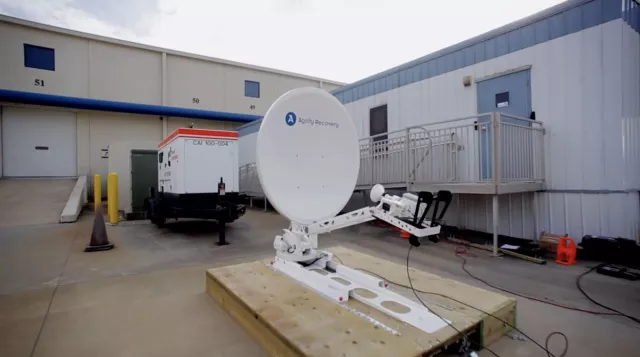How to Maintain Continuity for Manufacturers

Even if it has experienced unexpected disasters, your manufacturing company has a chance to continue running for an extended period.
Understanding how resilience and consistency contribute to the long-term success of a business is vital knowledge in the manufacturing industry. However, there are specific strategies that a manufacturing company must follow to ensure continuity.
These methods are necessary to increase revenue and satisfy customers. Below are some of the most important things you should know about creating and maintaining business continuity in the manufacturing sector.
Why the Manufacturing Industry Needs Business Continuity
A manufacturing company faces challenges like every other business due to unplanned occurrences. Some of these happenings may be difficult to manage or resolve. Understanding your manufacturing business's challenges could help you prevent interruptions to operations.
Companies may cease to operate if unforeseen accidents prevent them from promptly producing and delivering products to clients, jeopardizing their purpose. As the business's leader, you must ensure customers get their purchases as securely and fast as possible.
To achieve continuity, you must avoid running out of power, data, replacement parts, and other physical issues. Whether you have a big or small manufacturing organization, you have a high probability of encountering accidents, such as a lack of electricity or an absence of experienced technicians to manage the situation. Companies with a robust continuity plan often find it easier to recover from disasters.
Business Continuity Plan: 5 Professional Services You Should Include
A business continuity plan (BCP) is a strategy companies implement to ensure smooth operation even during disruption. Businesses need not fear a shutdown if they have the right BCP to help them recover.
Disasters are inevitable, so your business should prioritize preventing hazards by figuring out where they are likely. Afterward, you should list these risks in order of likelihood. For example, setting a continuity plan for power outages should come before data recovery because the latter may only be possible with a power source.
Below are recovery services to safeguard the continuity of your manufacturing business.
1. Tech Equipment Recovery
Sometimes, a manufacturing business may encounter a shortage in its technological equipment. Having a disaster recovery and business continuity plan that includes how and where to get the equipment is crucial to ensure business efficiency. Services are readily available for your production company to continue mechanical operations without delay.
2. Data Recovery
One of the challenges manufacturing sectors face is accidental data loss. Often, errors such as password loss can quickly resolve without needing professional services. However, in the case of a security breach, you must employ experts who can recover lost data while filing legal actions against the cyber-criminal.
3. Power Recovery
Whether due to human-made errors or natural disasters, power outages can significantly affect the operations of a business. Manufacturing businesses often have backup power like generators to continue production. An alternative energy source can be acquired from power recovery services at a lesser cost, ensuring you do not overspend on maintaining one.
4. Office Space Recovery
A company may encounter a natural disaster that disrupts the smooth operation of its business. For example, some manufacturing businesses like Apple shut down and moved to remote work due to COVID-19. In such cases, companies can employ recovery services to provide employees with temporary but safe workspaces.
Another natural accident that may lead to loss of office space is an earthquake, which may temporarily force a business to relocate its workers to another area.
5. Network and Communication Recovery
It is necessary to have a backup plan in case of network disruptions. Construction activities can reduce the efficiency of a network system. As such, companies must consider this when drafting a continuity plan and include professional services to get their network and communications running effectively.
Why Your Manufacturing Company Must Employ Recovery Services
Business continuity and disaster recovery plans are vital for the manufacturing industry because risks such as losing data can be dangerous if there is no effective and prompt response to maintain them. There are various critical justifications for why maintaining a business recovery plan is worthwhile.
With a recovery plan, your company can prevent financial loss due to a short response time. A continuity service also ensures the proper authorities are immediately notified when there is an emergency.
Manufacturers frequently cannot continue their work when critical data is lost, which causes extensive downtime and astronomical costs. Nevertheless, experts may enhance business continuity using cutting-edge cloud technologies.
As a result, you can swiftly implement your plans and save a lot of money on costly infrastructure. Additionally, business owners with several production plants are ideal candidates for cloud-based disaster recovery plans because they require less testing time and a smaller staff.
Improve Your Emergency Response
Business recovery services exist to ensure fast response when a disaster breaks out in a production company. Managing the risks in your organization can ease your fears of inevitable dangers and allow you to achieve your goals.
Zac Amos is the Features Editor and a writer at ReHack, where he loves digging into business tech, cybersecurity, and anything else technology-related. You can find more of his work on Twitter or LinkedIn.



